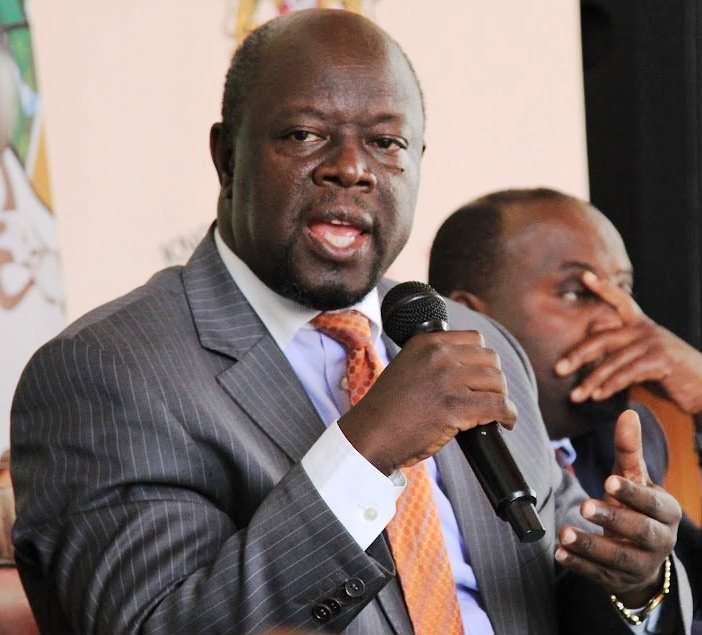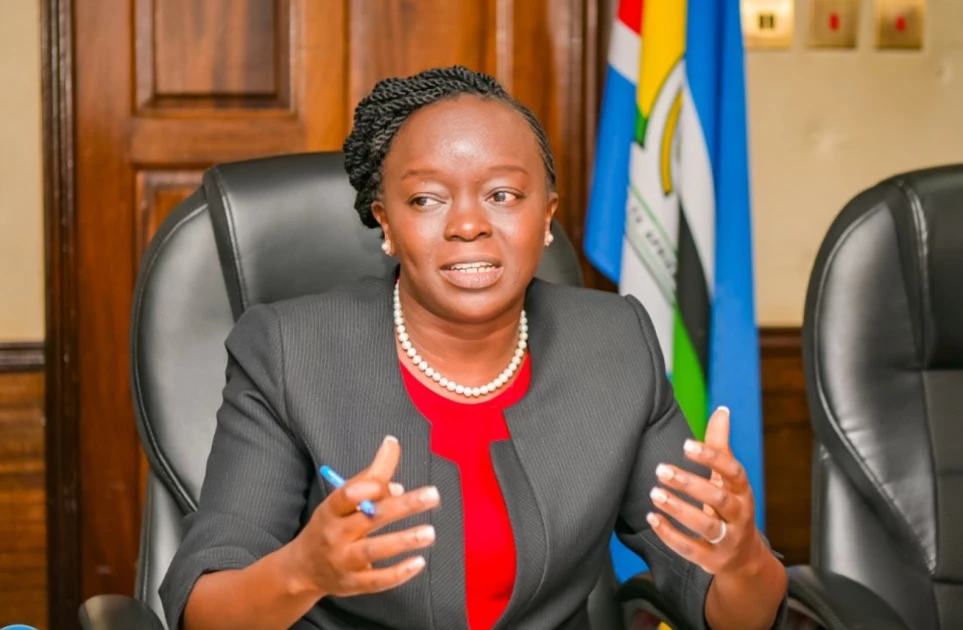Last week, a Senate watchdog committee directed the Ethics and Anti-Corruption Commission (EACC) to commence investigations for alleged financial malpractices in Trans-Nzoia County during former Governor Patrick Khaemba’s time in office. It has been discovered that the Trans Nzoia County government also failed to remit Ksh. 105.3 million in statutory deductions despite having deducted the money from staff, exposing the devolved unit to penalties
By The Weekly Vision Team
When the immediate former governor of Trans Nzoia County, Patrick Khaemba, defected from Ford-Kenya to President Ruto’s UDA party in the run-up to the last elections, many believed that he would be considered for a top state job once President Ruto was sworn in. However, when the president was naming members of his cabinet, Khaemba’s name never featured anywhere as many had expected.
Analysts, however, say that President Ruto relied on intelligence reports when he made his final choices for cabinet and principal secretaries. Many people had questioned at the time why President Ruto could just ignore Mr Khaemba, a man who had served as governor for two consecutive terms. And even when the Public Service Commission declared a vacancy in the office of Chief Administrative Secretaries, Khaemba’s name was shortlisted but never made it to the final list of appointees by the president. It later emerged that the president had been advised by the intelligence community against appointing Mr Khaemba because of corruption and audit queries when he served as governor. Sources say Mr Khaemba left office with so many audit queries where it is suspected public funds were looted or misappropriated during his tenure.
Last week, a Senate watchdog committee directed the Ethics and Anti-Corruption Commission (EACC) to commence investigations for alleged financial malpractices in Trans-Nzoia County during Mr. Khaemba’s time in office. It has been discovered that during Khaemba’s tenure, the Trans Nzoia County government also failed to remit Ksh. 105.3 million in statutory deductions despite having deducted the money from staff, exposing the devolved unit to penalties. A report, analysis of the i-Tax general ledger report obtained from the County Executive’s KRA portal revealed that tax obligations totalling Ksh. 2,759,678,795 comprised Ksh. 2,393,901,512 PAYE, Ksh. 134,663,056 VAT, and Ksh. 231,114,227 withholding tax was outstanding as of June 30, 2022.
It has also been discovered that during Khaemba’s tenure, a review of the payroll revealed that six (6) employees were sharing three bank accounts, and as a result, salaries were paid into these shared accounts. There was no documentary evidence indicating the affected officers had given authority to the County Executive to pay their salaries into these common accounts.
Further, an amount of Ksh.151, 826,540 for salaries and allowances was paid outside the Integrated Personnel and Payroll Database (IPPD), contrary to Section 1.5.1 of the Financial Accounting Recording and Reporting Manual.
The report also reveals irregular promotions, where 106 employees of the County Executive were promoted by between 2 and 9 job groups within a year. The basis of these unusual promotions is not supported by documentary evidence such as advertisements, a list of applicants, interview minutes, or a budget for the promotions. Further, no explanation was given in support of the unusual movement in job groups.
The report further reveals that there was irregular retention of employees over 60 years old. The statements of receipts and payments reflect the compensation of employees (Ksh. 2,908,416,393).
Included in the balance is Ksh. 142,182,717 paid to 39 employees who were still in service despite attaining the mandatory retirement age of 60 years for several months based on the June 2022 payroll.
Further review of records maintained by the County Executive revealed that outstanding property rates amounted to Ksh. 20,020,184,186 as of February 19, 2022. However, there was no evidence of the measures put in place by management to collect the rates. This was contrary to Regulation 63(b) of the Public Finance Management (County Governments) Regulations, 2015, which provides that an accounting officer and a receiver of revenue are personally responsible for ensuring that adequate measures, including legal action where appropriate, are taken to obtain payment.





